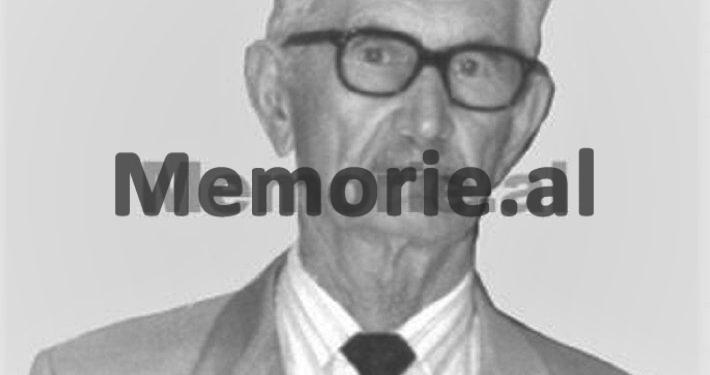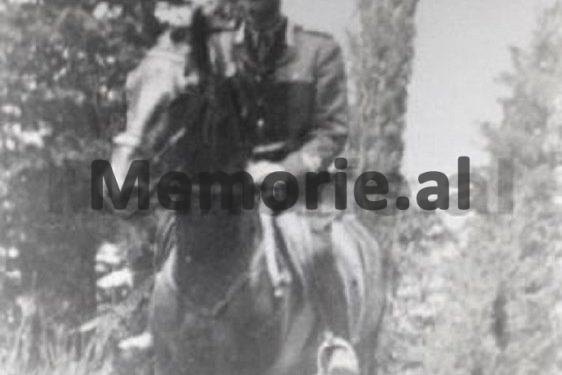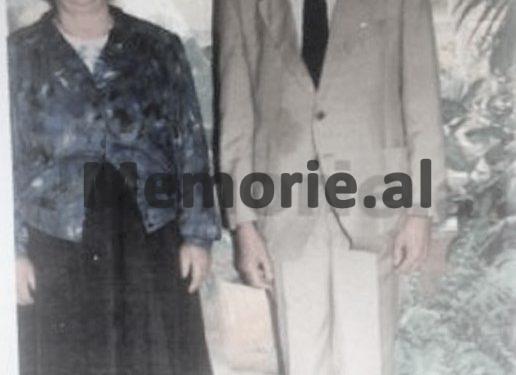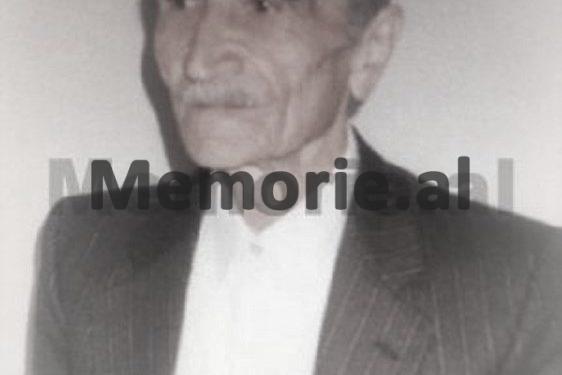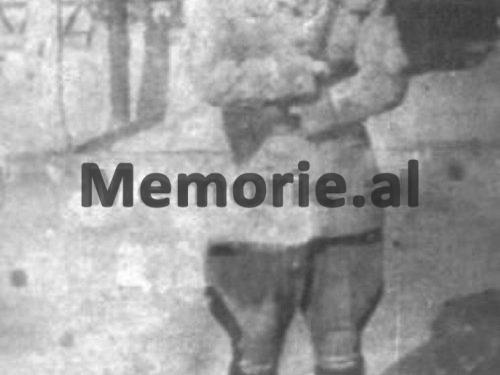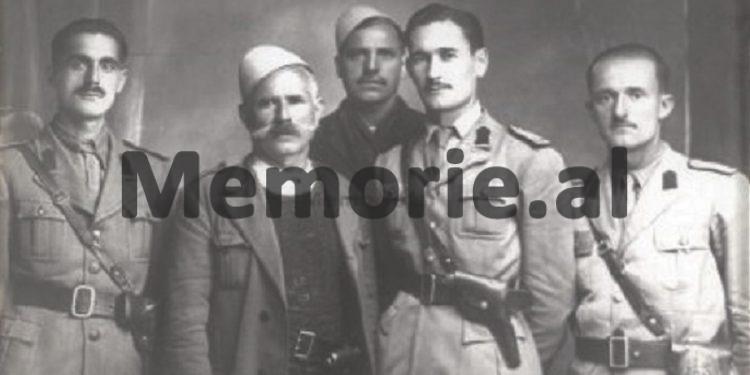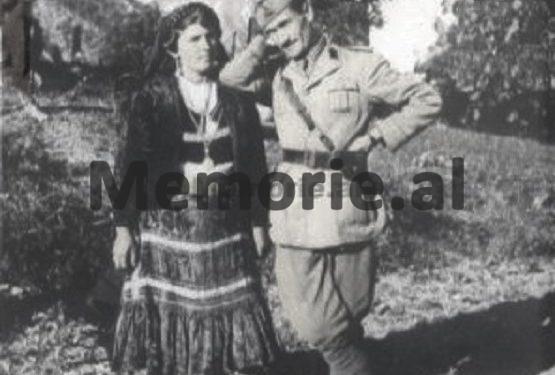Dashnor Kaloçi
Memorie.al publishes the painful story of Lekë Vojvoda, originally from Shoshaj of Dukagjini, who after graduating from the Military Academies of Modena and Florence returned to Albania serving as the district commander of the Lezha and Tuz Gendarmerie, where he became associated with Anglo-American missions serving in that province under Major Nils. How did he respond to the call of the communist regime in 1945 by surrendering after the amnesty together with Mark Malë, Gjergj Vata, Pal Thani, Lulash Staka, Mirash Ndoun e Gjocaj and the mayor of Dukagjini, Lulash Gjeloshi with all the men of the tribe and the sentence of his long years in prison and family internment…
In 1944, while serving as commander-in-chief of the Dukagjini gendarmerie, I entered into secret relations with British Major Nils, who was leading one of the Anglo-American missions then attached to nationalist forces in northern Albania. According to his orders, I then helped all those forces fighting against the Germans, such as the Communists, the Ballists and the Legalists. In July 1944, I resigned as Tuz district commander and went to Shoshaj, where I was constantly under the anxiety of being beaten and arrested by both partisans and German forces. As such a fugitive I stayed for two years hiding in the mountains of Dukagjini together with Mark Malë, Gjergj Vata, Pal Thani, Lulash Staka, Mirash Ndoun and the Bajraktar of Dukagjini Lulash Gjeloshi with all the men of the tribe. In October 1946, when the Communist Government of Tirana announced an amnesty for all the fugitives, I decided and surrendered myself along with some other comrades, thinking that the communists would keep their word for the pardon they issued. But I was wrong, that the communists cut us off and sentenced me to seven years in prison and long internments, from which I was released only in 1984 “. Speaking for Memorie.al for the first time, is Lekë Vojvoda from Shoshaj of Dukagjini, former academic officer with the rank of captain graduated in Modena, Florence, who tells the whole story of his life from the high school benches of Shkodra, studies in the Italian Academies, the beginning of his military career during the years of occupation, great help to the anti-fascist movement, to the arrest and punishment by the communists of long years of imprisonment and exile, leaving behind a life where endless splendor, suffering and vicissitudes are inextricably intertwined with each other, the noble highlander Lekë Vojvoda has described master Padër Gjergj Fishta in “Lahuta e Malcisë” In his simple house located in a narrow alley of the neighborhood “Three Heroes” of the city of Shkodra, he tells by recalling events, d they, years and people with different stories and from time to time he interrupts his story because they betray him with a few tears that fall on his cheeks!
Follows from the previous number
In Shkodra, he releases 29 arrested communists
After returning to Albania, on February 14, 1943, Lekë Vojvoda was appointed Commander of the Gendarmerie in the district of Lezha and then in the small town of Tuzi, which at that time was under the administration of the Albanian state. Regarding this period of time, Leka says: “My military career began in the district of Lezha where I was appointed Commander of the Carabinieri. During that time in that city there were three officers of the Italian Army (SIM) and a company with During those three months that I served in that city as Commander of the Carabinieri (Gendarmerie), I set myself the task of destroying the militia company altogether together with the three SIM officers, for which I constantly propagandized to the officers. Albanians who were in charge of the militia company to leave that task, as it was not in the interest of the national cause. After some time they listened to me and abandoned the task assigned to them, which led to the destruction of the company of the Italian militia which was left without any officer. Also through the people I had in Tirana, I intervened and transferred the three SIM officers who had made a bad name in Lezha. all those actions I did, I had a great support in Tirana from General- Prenk Përvizi, who was the father of my close friend Valentin. After three months, I was transferred from Lezha to the small town of Tuzi, which at that time was within the political borders of Albania and was administered by official Tirana. My appointment as Commander of the Tuz Gendarmerie coincided with the creation of the Albanian Gendarmerie, which was previously covered by the Italian Carabinieri. From the first days I took office there, I received an order from the Ministry of Interior, which ordered me to arrest 29 communists in that area and take them bound to Shkodra. I carried out the order and took the 29 communists whom I did not bind, and together with them, I went to the city of Shkodra where I first talked to the Commander of the Gendarmerie, Major Ndrec Prenga, to whom I told that the order for their arrest was wrong. I told Major Ndreca that I was responsible for the activities of those communists I had arrested, and the Ministry in Tirana did not know anything and could not order me to arrest them, as there was no information from me. I managed to persuade Major Ndreca to release all the arrested communists, telling him that I was the guarantor for all of them. After that I took all 29 communists with me and took them back to Tuz, releasing them all. Among those 29 people released at that time, was Hajrulla Kastrati together with Age Gruda, who were known as the main exponents of the communist movement in the entire Shkodra Region “.
With British Major Nils
Lekë Vojvoda did not stay in the position of Gendarmerie Commander of Tuz for more than six months, because he was transferred to his hometown of Dukagjini, giving him the rank of Captain and the post of Gendarmerie Commander of that province. time was not under the administration of Shkodra. Regarding this, Leka recalls: “During the time I was serving in the province of Dukagjini, I entered into secret relations with the British Major Nils, who at that time was the head of the Anglo-American mission that was attached to the nationalist forces and operated in the North. From the first meeting I had with him, he wanted to know about my views and asked me what I thought about the regime that should be established in Albania after the end of the war, I told him openly and without any reservations. My views were to tell him that the Monarchy should be restored in Albania, and after this conversation, Major Nils instructed me to take advantage of my position and help all the forces that were fighting against the Germans at that time. I helped with all my means the activity of all those forces that fought against the Germans, such as those of the National Liberation Army led by the communists, Balli and Legality. I kept them through Professor Kole Prela, to whom the communists had told him to take a statement, where I would confirm and sign that I was on their side. But despite the great help I gave to the representatives of the Front, the statement that the communists demanded through Prof. Kole Prela, I never gave it to them. During the period that I was serving in Dukagjini, the Germans deployed and created a battalion of mercenaries to fight against the partisans in the South of Albania. I was against the creation of this battalion and used all my knowledge to make propaganda that the highland boys should not join there. For that I encouraged Age Gruda, who stood up and spoke against the idea of creating that battalion, which was later created and went and fought against the partisans in the districts of Vlora and Tepelena “.
On the run from the communists
In the province of Dukagjini, Lekë Vojvoda served until July 1944, when he resigned, resigning from his post. Regarding this, which marks the end of the short military career of Captain Lek Vojvoda, he says: “After I resigned in July 1944, I went to the mountains with some of my relatives, always being under anxiety. In December 1944, when the communists came to power, I continued to stay in the mountains around Dukagjini with Mark Malë, Gjergj Vata, Pal Thani, Lulash Staka, Mirash. Ndoun of Gjocaj, as well as Bajraktar of Dukagjini, Lulash Gjeloshi with all the men of the tribe.Also during that time my brother Lulash Vuksani and Mhill Nika were on the run with me, to whom I told that when I try with the partisans , not to shoot to kill them because we had not gone out for that work in the mountains.On August 24, 1946 while we were still on the run and secretly went to sleep in our houses, he came to arrest me Lieutenant Xhemal Selimi, who at that time was the head of the Security Section for Dukagjini. After receiving orders to arrest me along with all the Bajraktar of Dukagjini, Lulash Gjeloshi, Xhemali had made the plan and divided the forces into two parts in order to arrest us at one time, to avoid the escape of one or the other. According to the plan he had made, he sent me two partisans to call me home. After their words, I came out armed and so I went and met Xhemali, who told me that we should go somewhere for some clarification. While I was with Xhemal and his companion, I realized that he had called me to arrest me, because as I had left a little for personal needs, I turned around and found my gun without the cartridge case. When I complained to Jamal about this, he shouted at his soldiers cursing them, but I realized it was a game of his. While I was walking alone with Xhemali, who was standing behind me ready to shoot me, his partisans had gone and arrested Bajraktar, Lulash Gjeloshi, who was ill and riding a mule was taking him to where he was. said Xhemali. While Xhemal Selimi’s three partisans were accompanying Bajraktar, they clashed on the street with his nephew, Beg Delina, who was armed at the time after working as a tax clerk in the Dukagjini administration. Seeing that Bajraktar had been arrested, Bega shot and killed all three partisans and then took Lulash Gjeloshi and went to the mountains with him. I heard the shots, took the opportunity and ran away from Xhemal Selimi in a narrow path, miraculously escaping from his bullets that whistled at my ear. After escaping from the trap set by Xhemal Selimi, Bajraktar, Lulash Gjeloshi and I and some of our relatives continued to flee, as there was no longer any doubt that the communists were looking for us to arrest us. On the same day, as a sign of revenge, Xhemal Selimi, with his people, went and burned my two-story house in Shosha, together with all the cattle stalls. The damage caused to me was very great, as my family at that time was among the richest in Dukagjini and all the belongings that the house had were bought in Italy. “As if what he did was not enough, Xhemal Selimi deported my family to Berat Castle,” recalls Lekë Vojvoda, when he barely escaped the trap set by the communists through the Dukagjini Chief of Security.
7 years in prison and internment until 1984
After escaping arrest, Lekë Vojvoda continued to flee with his brother Lulashi, and several other well-known anti-communist figures, including the Bajraktar of Dukagjini, Lulash Gjeloshi, with his nephew Beg Delina and other men. the tribe. In this regard, he recalls: “Together with all those men we hid in the mountains of Dukagjini until October 1946 when the Communist Government of Tirana announced an amnesty for all those who fled. At that time, I was with him. the whole group that was on the mountain, we decided to surrender thinking that the communists would keep their word. Only Beg Delia, refused to surrender but fought and was killed in an attempt by the pursuit forces.Our decision to surrender had been wrong that the communists did not keep their word and arrested us all. After surrender we were kept for 14 months in the interrogator, where Xhemal Selimi came himself and tortured me in the most barbaric way with his own hands. In October 1947, I went to trial and I was sentenced to seven years in prison, and together with me were sentenced Lulash Gjeloshi, Mark Malaj, my brother Lulash Vuksani, Sadik Marku, Nik Lushi etc. All the sentence of seven years I served in the Beden camps of Kavaja and Orman -Pojan and I was released from prison in 1953. Less than three weeks after my release, I was interned in Savër, Lushnja, where my family, my wife Syka, and my son, Vuksan, were at the time. There in Savër of Lushnja we stayed interned with our families until 1984 “, concludes his story, Lekë Vojvoda, the former Commander of the Dukagjini Gendarmerie, who even though he had helped the Anti-Fascist Movement during the War by releasing 29 communists from Shkodra arrested , suffered for 40 years with his whole family in prisons and internments./Memorie.al




